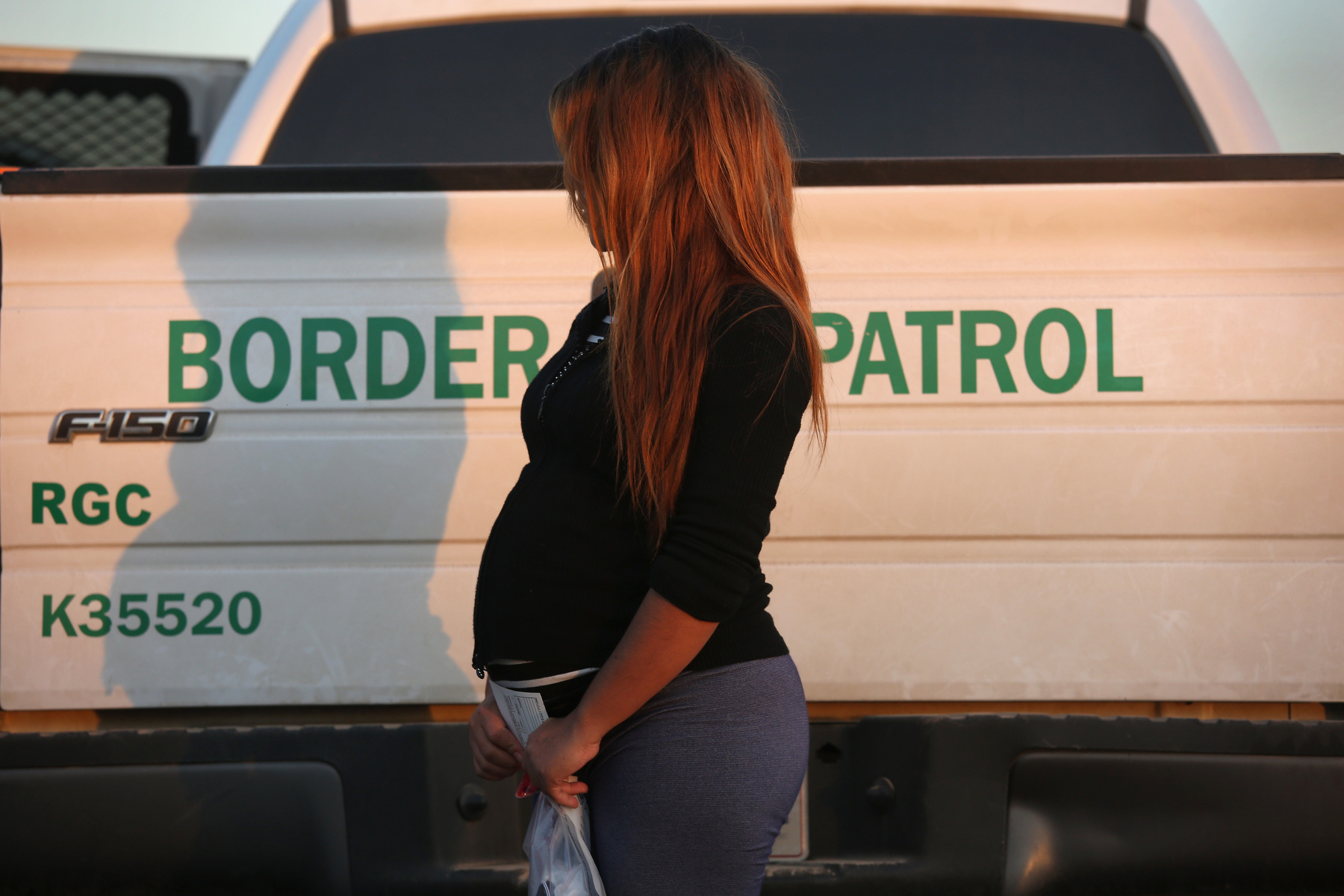President Donald Trump’s efforts to significantly restrict immigration have extended the presence of immigration enforcement officers to schools, churches and hospitals. The administration is also rolling back funding for organizations that provide services for immigrants, as well as states and cities with legal protections. These policies have raised the risks that immigration restrictions and limited abortion access present to the health and well-being of pregnant undocumented people.
As a result, people in fear of deportation may avoid hospitals when they face pregnancy complications, or they may attempt to move to another state with protections for reproductive care, which could further put them in the crosshairs of immigration or law enforcement officials. The 19th spoke to Paula Ávila-Guillén, a Colombian human rights lawyer and executive director at the Women’s Equality Center, about the intersections between abortion access and immigration, the effect of the second Trump administration so far and how national abortion groups can elevate the perspectives of immigrants. Her group, which is based in New York, focuses on supporting reproductive justice work and messaging in Latin America and the Caribbean — work that also affects people in the United States.
This interview has been edited for length and clarity.
Candice Norwood: It’s been almost three years since federal abortion protections were overturned. What are some of the ways that you have seen state abortion restrictions affecting undocumented pregnant people?
Paula Ávila-Guillén: There are multiple layers. We are already seeing data that’s coming out of Texas that there is a spike in sepsis, which is a condition that starts creating an infection in your entire body and is one of the main causes of maternal mortality across the world. Sepsis is something that unfortunately we see often in countries that have total abortion bans and significant restrictions. So, one consequence is death from sepsis, or maybe you don’t die, but you can develop other health issues because you are afraid to go to the doctor for treatment.
Then there’s the threat of family separation. Most people who have abortions have children already, so if you are in a situation where you are forced to go to a hospital because of pregnancy complications, and if the hospital happens to have an immigration officer, you might get deported and your family is separated.
In other cases, you might not be able to access abortion and could be afraid to order abortion pills online because you think that will reveal your immigration status. Your only solution might be to travel out of the state to be able to get that care. But you might not have a driver’s license if you are undocumented and live in a state with strict immigration laws, so you might not be able to drive or take a plane.
If you’re lucky enough that you have a community that helps you to leave the state, you are also going to have economic and legal consequences of having to travel undocumented and find another job in another state. We’re finding a lot of immigrants right now are relocating, going from very hostile states to states that might be more welcoming, but there are all these extra barriers if you don’t have proper documents.
There’s been a lot of discussion about government surveillance as it relates to reproductive care. How is the monitoring we see in the criminal legal system converging with patients’ health care when it comes to undocumented people?
This is something we are seeing a big shift with in the Trump administration. The moment that the Trump administration is allowing immigration officers to enter hospitals, to enter health care centers, the administration is immediately converting emergency waiting rooms into possible interrogation rooms. This is something that is going to make a person who is already afraid and doesn’t have documents to not seek health care.

Something we have seen in the case of El Salvador, which has a total abortion ban, is that at one point there were over 165 women in prison, the large majority because of miscarriages. At the moment that they were being interrogated by a cop in the hospital bed, they were not giving the perfect answers to the police and therefore, immediately that made them suspects. The police opened a case that didn’t allow the women to go anywhere. They would go from the hospital to prison.
So, for immigrants in the United States who fear this, the response is “Well, I am not going to seek health care because the risk is I may be deported and separated from my family.”
In 2017 there were court battles over the Trump administration’s attempt to restrict abortion access for pregnant people in federal custody. Do you know if the current administration has made any changes to how it will treat pregnant people who are detained?
I don’t have any specifics on that, but regardless of whether there’s a policy or not, because of the level of pressure that the administration is putting onto ICE agents in terms of numbers, I am certain that the reality is that they’re going to do whatever is necessary to reach a quota. They have a certain number of people they want to detain per day.
There’s a lot of talk about President Obama detaining a lot of people, but the narrative that was coming out at the time was not a narrative that was necessarily anti-immigrant. It was not a narrative to say that immigrants were bad people, that we needed to take them out of this country, that immigrants are the reason why the economy is not working.
That narrative from the Trump administration makes a big shift because it creates the hostile conditions in which abuse usually happens, abuse by officers who feel encouraged and protected by the administration to do whatever they think is necessary to fulfill their needs. But it also creates a level of fear that brings immigrants to say, “I am not going to a hospital right now.”
I also think it’s relevant to highlight that with the [attempted] cuts of U.S. aid and all the funding in Latin America and Africa, what they’re going to do is they’re going to create an exacerbation of migration.
And if that’s the case, I imagine that a number of those migrants could be pregnant.
As scary as the journey across the border could be, many women try to travel pregnant because there is a belief that if they are pregnant they will avoid being raped. This is one of those tales sold to immigrant people. There’s also the thought that if you have a baby in the United States then the baby is going to be a citizen, right? So that adds an extra layer.
Are there any other things you are going to be paying attention to during the Trump administration when it comes to immigration policies and reproductive rights?
One is that even people who are undocumented have different levels of privilege depending on where they live. And I think that that’s going to have a direct impact on those who live in some states versus others, and that’s going to cause a bit of internal migration.
Another thing is that abortion access right now is popular across public opinion polls and support has increased. That is not the case for immigration. So I think it’s important for us as an abortion movement, as a reproductive justice movement, to work alongside our immigrant communities and use our voices to highlight how these policies are having a disproportionate impact on immigrant communities. I think that the movement has a duty to use its growing popularity to also advocate for those who maybe don’t feel in the same situation.






